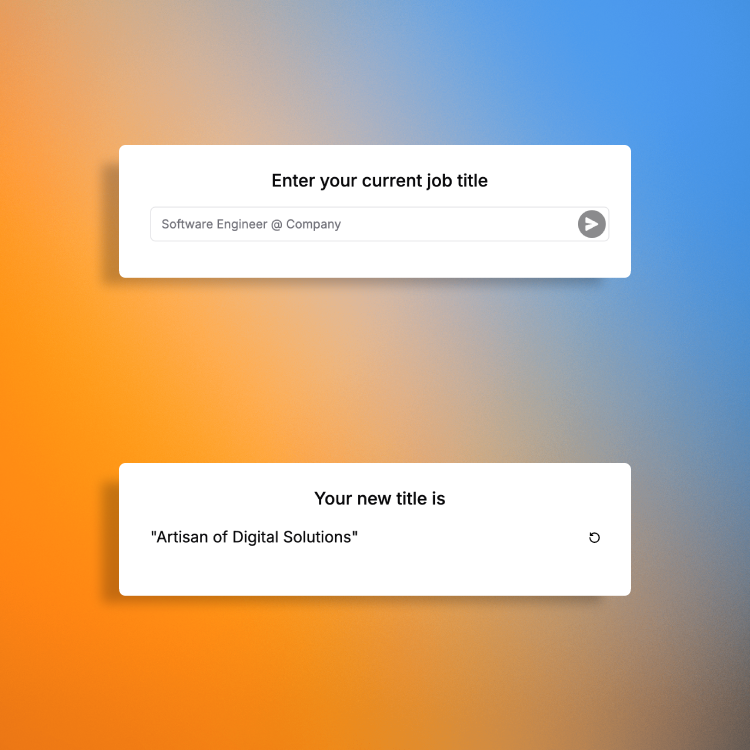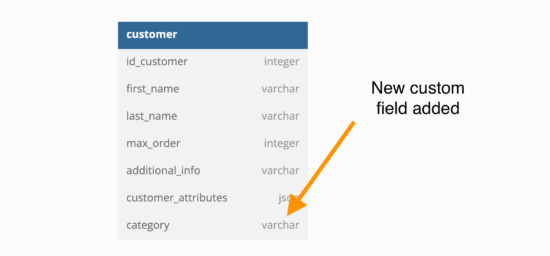This weekend, I was doing my usual month-end brainstorming about what to code next, underwriting wins/losses, and reviewing expenses and earnings from the past month. This made me realize that the project I mainly attached myself to didn’t earn the most. This made me question why, in all my social media titles, I had founder @ company. Putting that energy into the world made me try so hard to make @ company work when had I not attached myself to it, I would have closed the project within 3 months of launch. In this article, I will dive deep into how job titles came to be, why we humans do it, and why builders should do it or not. The interactable block where the cover image came from is at the end.
History
A great book called “Homo Deus: A Brief History of Tomorrow” teaches us that historians study the past not to repeat it but to be liberated from it, which enables us to be unburdened by the grip of the past and begin to notice possibilities that history might have missed.
For the sake of not going off topic, we will assume that people have constantly introduced themselves along with their skills, such as “John the Blacksmith,” “Dorcy the Hunter,” and “Alice the Weaver.” However, when it comes to elaborate job titles accompanied by company names, Scott Catwood, in this article, suggested that they came as a result of the first industrial revolution in 1760 because, by then, they had complex company structures that a more detailed job title was necessary to find which department to go to. Another point he made was that a better job title makes other companies you work with more likely to pick up the phone when you called as VP @ company instead of Sales Coordinator. He also stated that the Job Titles were also used as nonmonetary compensation for the employees, which made them grow and advance to other Jobs.
Psychology
Since we have established that the creation of job titles was meant to represent people on a corporate ladder, this research here, tells us a better job title psychologically comes with more perceived knowledge, skills, abilities, power, status, or responsibilities. This means that a change in job title will change your perceived value because job titles intrinsically imply value.
Effects
Reading the history and psychology of job titles quickly led me into a spiral of job title inflation. As you can imagine, some companies will give everyone VP or VP-adjacent titles to ensure prospects are more likely to answer the phone. Companies will also compensate employees with a job title change and the same responsibilities as before to retain and increase their perceived value.
Cultures
Let’s turn to Japan to see how Toyota does it with its Toyota Production System Handbook. In their handbook, two concepts stand out: Jidoka and Kaizen.
Jidoka, often translated as “automation with a human touch,” emphasizes the importance of empowering workers to stop the production line if they notice a problem. This philosophy places trust and responsibility in every employee, regardless of their job title. It encourages individuals to take ownership of their work and contribute to problem-solving processes.
Kaizen, meaning “continuous improvement,” is a mindset where all employees are actively engaged in improving the company. It breaks down hierarchical barriers by valuing suggestions and improvements from every level of the organization.
In the TPS handbook, the emphasis is on collective responsibility and the idea that everyone is part of a team working toward common goals. Titles are less important than the value each person brings to the process. By focusing on these principles, organizations can detach from rigid structures and titles, fostering a culture where everyone feels like a “chief product owner.”
Discussion
I firmly believe in flat organizations where everyone understands the bigger picture and contributes to improving or changing it. By detaching from inflated job titles and embracing philosophies like Jidoka and Kaizen, we can create environments that value collaboration over hierarchy. This approach not only enhances productivity but also leads to greater job satisfaction as employees feel more connected to the outcomes of their work.
Conclusion
Should jobs have titles? Yes, if they interact with outside customers or businesses. Corporate maxims will remain, but they should do so while understanding their purpose and effects. This helps them separate their self-worth from the titles and not give titles too much influence. However, if your team doesn’t interact with customers, titles can slow progress and create unnecessary red tape, hurting the common goal.
In my case, the title did what it was supposed to do. It got me access to services, events, and businesses, but I should have approached it with a better mindset, detached myself from it, and saw it for what it was.
Bonus
I created the job title generator below with NextJS to help you break free from titles. You can find the complete code here. The prompt could be better, but you will get the idea.




